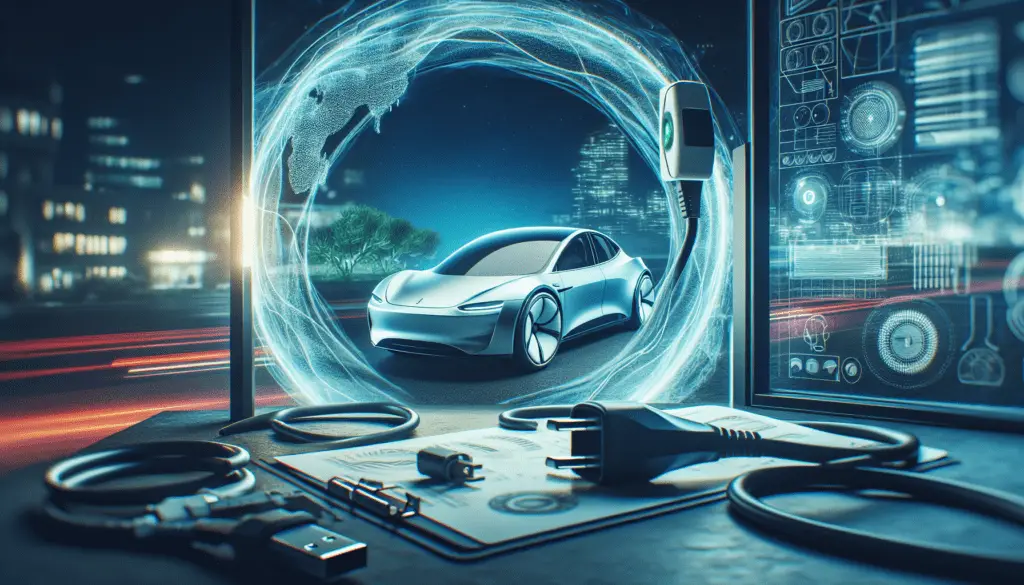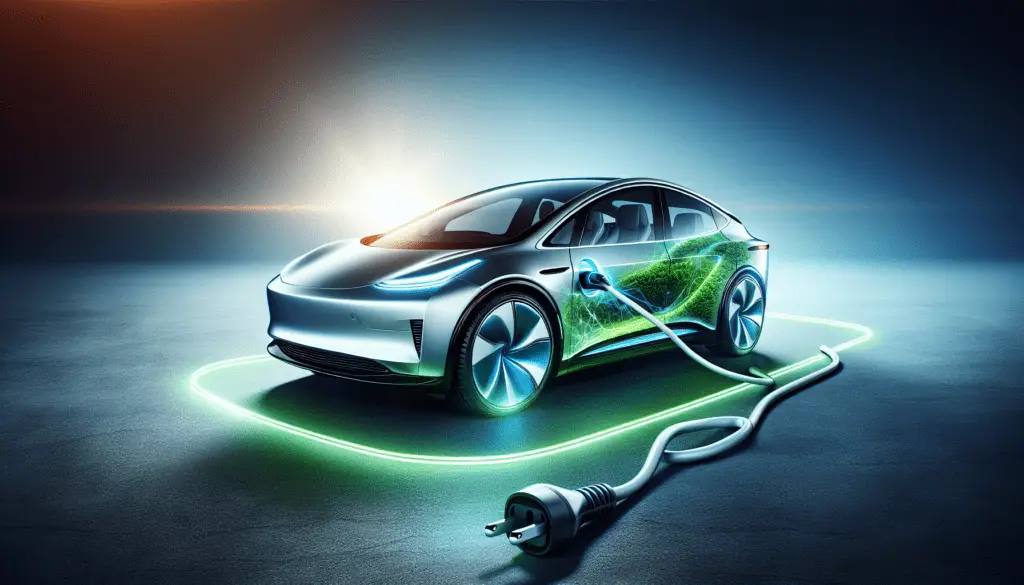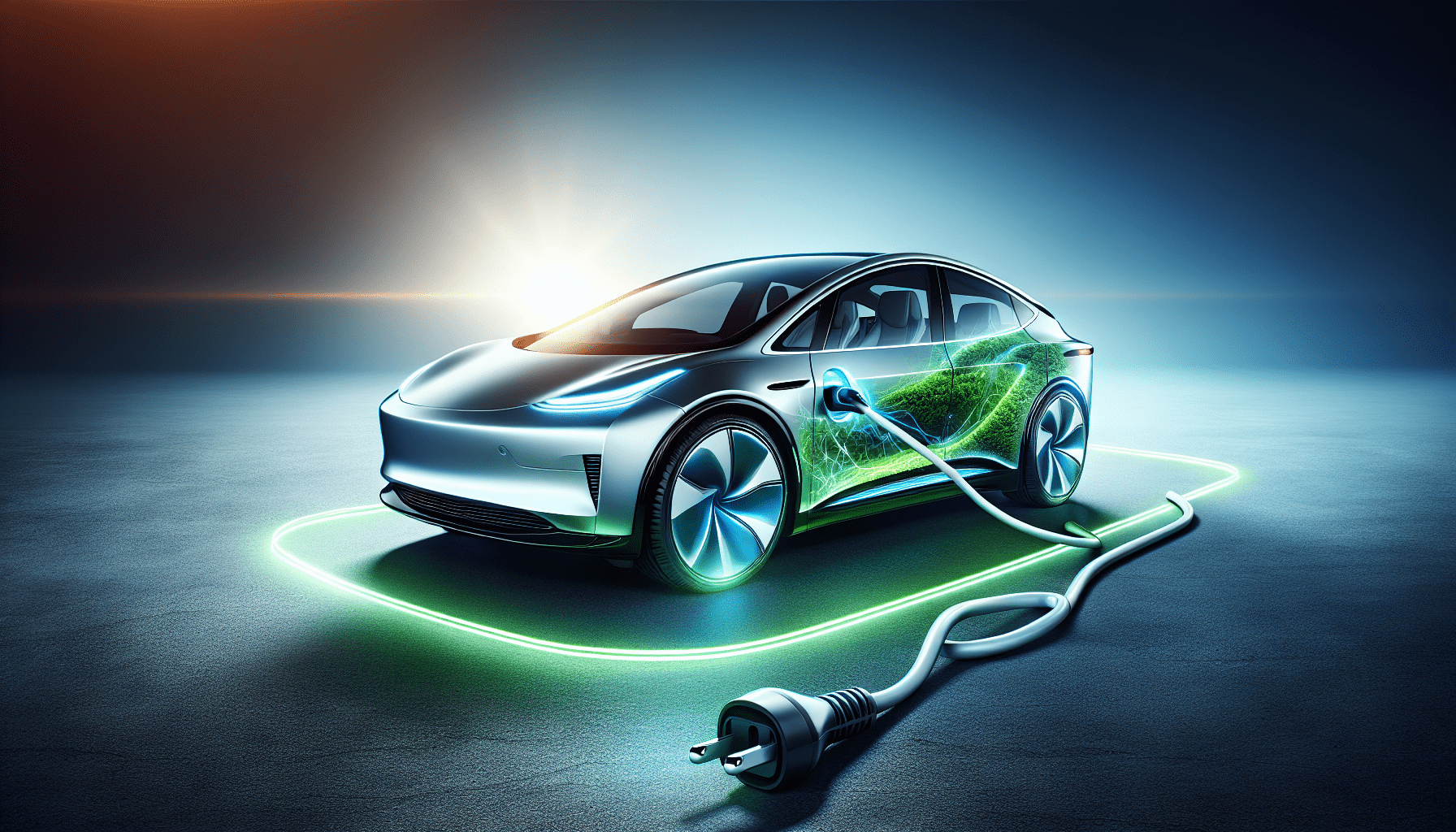If you’re considering buying an electric vehicle, you might be wondering if Ford electric vehicles are worth the investment. With the growing popularity of electric vehicles and the increasing demand for sustainable transportation options, it’s important to evaluate whether Ford’s offerings in this space live up to the hype. In this article, we will explore the features, benefits, and potential drawbacks of Ford electric vehicles, helping you make an informed decision on whether or not they are worth investing in. So, let’s jump in and discover if Ford electric vehicles are the right choice for you.
Advantages of Ford Electric Vehicles
Lower operating costs
One of the major advantages of Ford electric vehicles is their lower operating costs compared to traditional gasoline-powered vehicles. With an electric vehicle, you can save significantly on fuel costs since electricity is generally cheaper than gasoline. Additionally, electric vehicles require less maintenance and have fewer moving parts, which means fewer chances of mechanical failure and lower maintenance costs over time.
Environmental benefits
Another significant advantage of Ford electric vehicles is their positive impact on the environment. Electric vehicles produce zero tailpipe emissions, which means they do not contribute to air pollution and greenhouse gas emissions. By driving an electric vehicle, you can play a role in reducing harmful emissions and promoting cleaner air quality. This not only benefits the environment but also the health and well-being of the community.
Government incentives
Investing in a Ford electric vehicle can also come with various government incentives and tax credits. Many governments, at both the federal and state levels, offer incentives to encourage the adoption of electric vehicles. These incentives can include tax credits, rebates, and special grants that can offset a significant portion of the upfront cost of purchasing an electric vehicle. Taking advantage of these incentives can make owning a Ford electric vehicle even more affordable and economically beneficial.
Quiet and smooth driving experience
Electric vehicles are known for their exceptionally quiet and smooth driving experience. Unlike traditional gasoline engines, electric vehicles do not have a loud engine noise, making the cabin extremely quiet. This creates a serene driving environment and reduces noise pollution, especially in urban areas. Additionally, electric vehicles provide instant torque and smooth acceleration, offering a responsive and enjoyable driving experience.
Disadvantages of Ford Electric Vehicles
Higher upfront cost
One of the main disadvantages of Ford electric vehicles is their higher upfront cost compared to traditional gasoline-powered vehicles. The advanced technology and components used in electric vehicles generally make them more expensive to produce, resulting in a higher purchase price. However, it’s essential to consider the long-term savings on operating costs and potential government incentives that can offset this initial investment.
Limited driving range
Another potential drawback of Ford electric vehicles is their limited driving range compared to gasoline-powered vehicles. Electric vehicle batteries have a limited capacity and require charging at regular intervals. While the driving range of electric vehicles has improved over the years, it may still be a concern for those who need to travel long distances regularly. However, it’s worth noting that most daily commutes and general errands can easily be accommodated with the current range of electric vehicles.
Charging infrastructure
The availability of charging infrastructure is a critical consideration for electric vehicle owners. While charging stations are becoming more prevalent, the infrastructure is still developing and may be less abundant compared to gasoline stations. Depending on your location, finding a charging station may require some planning, especially for long trips. However, with the increasing popularity of electric vehicles, more charging stations are being installed, and the infrastructure is continually improving.
Longer refueling time
Charging an electric vehicle takes longer than refueling a traditional gasoline vehicle. While a typical gasoline vehicle can be refueled in a matter of minutes, charging an electric vehicle can take several hours, depending on the charging method and battery capacity. This could pose a challenge for individuals who are accustomed to quick refueling or have a tight schedule. However, advancements in charging technology, including fast-charging stations, are reducing charging times significantly, making it more convenient for electric vehicle owners.

Performance and Features of Ford Electric Vehicles
Acceleration and power
Ford electric vehicles offer impressive acceleration and power, thanks to their electric drivetrain. Electric motors provide instant torque, which results in quick acceleration and a thrilling driving experience. The instant power delivery of electric vehicles can often outperform their gasoline counterparts in terms of acceleration and responsiveness.
Driving range and efficiency
One of the crucial factors for electric vehicle owners is the driving range and efficiency. Ford electric vehicles offer varying driving ranges, depending on the specific model and battery capacity. Efforts have been made to improve their efficiency by optimizing battery technology and aerodynamics. The driving range of electric vehicles has significantly improved over the years, allowing for longer trips on a single charge. It’s important to consider your driving habits and needs when evaluating the driving range of a Ford electric vehicle.
Technology and connectivity
Ford electric vehicles are equipped with advanced technology and connectivity features. These vehicles often come with infotainment systems that integrate with smartphones and provide access to navigation, entertainment, and vehicle settings. Additionally, features like remote start and climate control can be controlled through smartphone apps, allowing for convenience and comfort. Ford’s SYNC system also offers voice-activated commands, making it easier and safer to manage various vehicle functions while on the road.
Safety features
Ford prioritizes safety in their electric vehicles by incorporating advanced safety features. These can include autonomous braking systems, adaptive cruise control, lane-keeping assist, and blind-spot monitoring, among others. Electric vehicles often have a lower center of gravity due to the placement of the battery, enhancing stability and reducing the risk of rollovers. Additionally, regenerative braking systems, common in electric vehicles, can offer increased braking efficiency and reduce wear on traditional brake components.
Comparison with Other Electric Vehicles
Price comparison
When comparing Ford electric vehicles with other electric vehicles on the market, it’s important to consider the price range and value for money. Ford offers a range of electric vehicles at different price points, allowing potential buyers to choose a model that fits their budget and requirements. Factors such as driving range, features, and battery capacity can influence the price of electric vehicles. It’s crucial to evaluate the overall package and compare it with other electric vehicles to determine the best value for your investment.
Driving range comparison
Driving range is a significant factor for those considering an electric vehicle. Ford electric vehicles offer different driving ranges depending on the specific model and battery capacity. When comparing with other electric vehicles, it’s essential to evaluate the driving range in relation to your daily commute and typical travel patterns. Understanding your driving needs and assessing the available charging infrastructure in your area can help determine which electric vehicle best suits your requirements.
Features and specifications
Electric vehicles vary in terms of features and specifications, and it’s important to compare these elements when considering a Ford electric vehicle. Features such as infotainment systems, connectivity options, advanced safety features, and available driver assistance technologies can significantly influence the overall driving experience. Understanding your priorities and preferences will enable you to compare the features and specifications of Ford electric vehicles with other electric vehicles on the market.

Resale Value and Depreciation
Resale value of Ford electric vehicles
The resale value of Ford electric vehicles can vary depending on factors such as the model, age, condition, and demand for electric vehicles in the used car market. While electric vehicles are gaining popularity, their resale value may still be affected by the rapid advancements in technology and battery capabilities. However, the resale value of Ford electric vehicles can be influenced positively by factors such as low mileage, a well-maintained battery, and the overall condition of the vehicle.
Factors affecting depreciation
Several factors can affect the depreciation of Ford electric vehicles. It’s important to consider the evolving nature of electric vehicle technology and the potential for newer models with improved features and longer driving ranges. Additionally, changes in government incentives, regulations, and tax credits can impact the demand and resale value of electric vehicles. The availability and advancements in charging infrastructure can also influence the perception and value of electric vehicles in the used car market.
Maintenance and Repairs
Lower maintenance costs
One of the advantages of Ford electric vehicles is their lower maintenance costs compared to traditional gasoline vehicles. Electric vehicles have fewer moving parts, reducing the chances of mechanical failure and the need for frequent repairs. The absence of a combustion engine also means less frequent oil changes, air filter replacements, and spark plug maintenance. Although electric vehicles may require occasional maintenance on components such as the battery, the overall maintenance costs are typically lower, leading to potential long-term savings.
Availability of service centers
When considering the maintenance and repairs of Ford electric vehicles, it’s important to evaluate the availability of service centers. While the number of service centers specialized in electric vehicles is increasing, it may still be more limited compared to traditional gasoline service centers. However, Ford has been expanding its service network for electric vehicles, ensuring that owners have access to qualified technicians who understand the unique requirements of electric vehicle maintenance and repairs.
Charging Options and Infrastructure
Home charging setup
One of the most convenient charging options for Ford electric vehicle owners is a home charging setup. This involves installing a home charging station, also known as an Electric Vehicle Supply Equipment (EVSE), in your garage or driveway. Home charging allows you to conveniently charge your electric vehicle overnight, ensuring it is ready for the next day. Ford electric vehicles often come with options for home charging stations, making the setup process seamless and user-friendly.
Public charging stations
Public charging stations are increasingly prevalent, making it easier for electric vehicle owners to charge on the go. These charging stations are typically located in parking lots, shopping centers, and along highways, providing convenient access to charging facilities. Public charging stations can offer various levels of charging speeds, from standard charging to fast charging, depending on your vehicle’s capabilities and requirements. By utilizing public charging stations, you can extend your electric vehicle’s driving range during long trips or when away from home.
Ford’s charging network
Ford has also established its own charging network, FordPass Charging Network, in collaboration with several charging providers. This network offers Ford electric vehicle owners access to a growing number of charging stations across the country. By utilizing this network, you can benefit from convenient access to charging stations, real-time charging information, and simplified payment processes. Ford’s charging network aims to enhance the overall ownership experience and provide peace of mind for electric vehicle owners.
Sustainability and Environmental Impact
Reduced greenhouse gas emissions
One of the significant environmental benefits of Ford electric vehicles is their contribution to reduced greenhouse gas emissions. Electric vehicles produce zero tailpipe emissions, leading to a decrease in air pollution and the harmful effects of greenhouse gases. By transitioning to electric vehicles, individuals can help mitigate climate change and reduce their carbon footprint, making a positive impact on the environment and future generations.
Battery production and recycling
The production and recycling of electric vehicle batteries are crucial in examining the sustainability and environmental impact of Ford electric vehicles. Ford is actively engaged in battery research and development, aiming to improve the efficiency and sustainability of battery production. Additionally, Ford takes measures to ensure responsible recycling and disposal of batteries, reducing the environmental impact associated with their end-of-life process. As technology advances, efforts are being made to enhance battery efficiency and minimize the environmental footprint throughout the entire lifecycle of electric vehicles.
Life cycle analysis
Life cycle analysis is a comprehensive evaluation of the environmental impact of a product throughout its entire lifecycle. This includes various stages, such as raw material extraction, manufacturing, operation, and end-of-life disposal. Ford conducts life cycle assessments to understand the overall environmental impact of their electric vehicles and identify opportunities for improvement. By considering the entire life cycle, individuals can make informed decisions and understand the sustainability of Ford electric vehicles.
Customer Reviews and Satisfaction
Feedback from Ford electric vehicle owners
Customer feedback and reviews from Ford electric vehicle owners can provide valuable insights into the satisfaction and overall ownership experience. Many Ford electric vehicle owners have praised the driving experience, reduced operating costs, and environmental benefits of owning an electric vehicle. Others have highlighted the convenience of home charging and the ease of use of Ford’s charging network. Hearing from current owners can provide confidence and reassurance when considering the purchase of a Ford electric vehicle.
Customer satisfaction surveys
Customer satisfaction surveys conducted by independent organizations can offer a broader perspective on the satisfaction levels of Ford electric vehicle owners. These surveys typically evaluate various aspects of ownership, including reliability, performance, features, and overall satisfaction. Reviewing the results of these surveys can help paint a comprehensive picture of the ownership experience and assess whether Ford electric vehicles meet the expectations and needs of customers.
Future Developments and Innovation
Ford’s electrification plans
Ford has committed to a significant expansion of its electric vehicle lineup in the coming years. The company plans to invest heavily in electric vehicle development and aims to have 40% of its global vehicle volume be electric by 2030. This commitment demonstrates Ford’s dedication to electrification and its recognition of the shift towards sustainable mobility. The future developments and innovations from Ford in the electric vehicle space hold exciting possibilities for potential buyers, ensuring a diverse range of options and advancements.
Advancements in battery technology
Advancements in battery technology are continually being made, improving the driving range, charging speed, and overall efficiency of electric vehicles. Ford, like other automakers, is investing in research and development to enhance the capabilities of electric vehicle batteries. These advancements include higher energy density, quicker charging times, and improved longevity. As battery technology progresses, the limitations and concerns associated with electric vehicles, such as driving range and charging times, are expected to be further addressed.
Autonomous driving capabilities
Another area of innovation and development in the electric vehicle industry is the integration of autonomous driving capabilities. Ford has been actively exploring autonomous driving technology, aiming to improve safety and enhance the driving experience. While fully autonomous vehicles are still in the early stages of development, Ford’s foray into this field signifies the potential for groundbreaking advancements that may redefine the future of transportation. The combination of electric vehicles and autonomous driving holds exciting possibilities for the automotive industry and its customers.
In conclusion, investing in a Ford electric vehicle offers several advantages, including lower operating costs, environmental benefits, government incentives, and a quiet and smooth driving experience. However, it’s important to consider the potential disadvantages, such as a higher upfront cost, limited driving range, charging infrastructure, and longer refueling times. When comparing with other electric vehicles, factors such as price, driving range, and features come into play. Resale value and depreciation, maintenance and repairs, charging options and infrastructure, sustainability, customer reviews and satisfaction, and future developments should also be taken into account. Ultimately, the decision to invest in a Ford electric vehicle depends on individual preferences, needs, and priorities, and thorough research is essential to make an informed choice.


